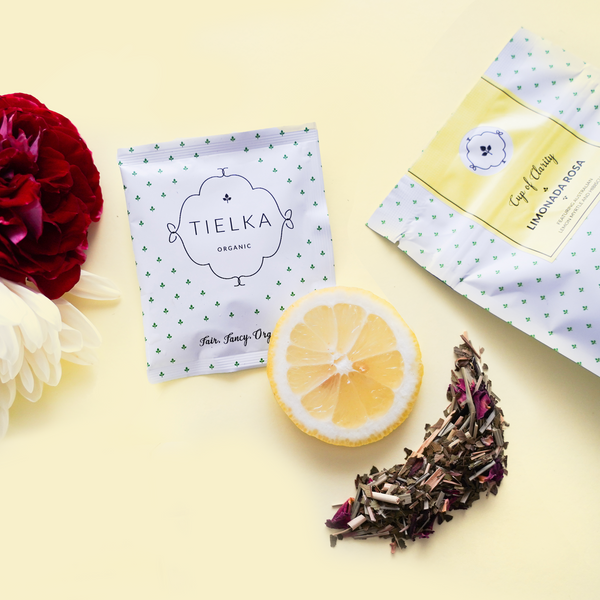Table of Contents
Lemon Myrtle
We know so little of the superfood properties of the plant we have come to know as "Lemon Myrtle", yes it is undoubtedly one of the most famous of Australian native plants.
This Australian shrub (Backhousia Citriodora), grown on the Australian east coast and known well to indigenous Australians is also commonly known as lemon-scented myrtle, lemon ironwood or lemon-scented ironwood. It is famous for its distinct fresh lemon smell and delicious lemongrass-like flavour.
Before we delve into these incredible superfood properties, let's have a closer look at this beautiful Australian plant, "Lemon Myrtle".
Lemon Myrtle Tree
The lemon myrtle tree is technically a flowering plant in the family Myrtaceae, genus Backhousia.
The plant is endemic to the subtropical regions of central to south-eastern Queensland, growing naturally from Brisbane to Mackay.

The plant can grow up to an incredible 6m high and the lemon myrtle leaf is evergreen, flowering in summer through autumn when they produce a spectacular, delicate lemon scent.
Owning to its evergreen leaves, lemon myrtle can be harvested all year round.
Lemon Myrtle Essential Oil
Two types of essential oil can be derived from the Lemon Myrtle plant. First, and by far, the most common, is the "citral" essential oil. It is used for flavouring and for essential oils used in aromatherapy and has an intense citrus aroma. The leaf yields the highest natural source, providing 1-3% citral.
"Citronellal" is the less common essential oil derived from the Lemon Myrtle tree and is suitable for making natural insect repellants. It is also an intensely aromatic essential oil.

Lemon Myrtle Properties and Benefits - The Ultimate Australian Superfood
The properties and benefits of lemon myrtle tea and lemon myrtle essential oil are a goldmine and a very powerful herbal medicine. Let's explore what the dried leaves of this beautiful Australian native superfood plant can yield:
Lemon Myrtle Properties
Lemon myrtle boasts the most concentrated source of plant citral (>90%). Citral contains powerful antimicrobials that are even superior to those of terpene hydrocarbons found in the renowned tea tree oil.
Antimicrobials are agents that kill microorganisms or stop their growth and include:
- antibacterials
- antifungals
- antiseptic
- antiviral
Lemon myrtle is also an excellent source of:
- antioxidants
- calcium
- folate
- lutein
- magnesium
- vitamin A
- vitamin E
- zinc
Lemon Myrtle Benefits
The above properties provide an exhaustive list of benefits, making it the true Australian superfood. Below are some of the benefits of lemon myrtle associated with these properties.
- Allergies
- Acne
- Arthritis
- Asthma
- Body odour
- Cramps
- Concentration
- Depression
- Detox
- Digestive issues
- Headaches
- Immune system support
- Muscle cramps and spasms
- Oral health
- Skin cleansing
- Sleep
- Sinus problems
- Sore throats
- Ulcers
- Viral infections
- Weightloss
Lemon Myrtle Side Effects
We have discovered some very strange, uncited articles claiming adverse side effects of drinking lemon myrtle tea. Unfortunately due to some obvious errors in these poorly written articles e.g. untrue claims of caffeine in lemon myrtle, we feel there is little credibility in these articles.
Scientifically, lemon myrtle tea is considered very safe for consumption. While we have found no scientifically documented research articles on any side effects of consuming lemon myrtle tea, the golden rule always applies - "everything in moderation".
The only considerations that may exist are in regard to the consumption of lemon myrtle tea during pregnancy (see below) and the use of lemon myrtle essential oil as a topical product. Lemon myrtle in a topical product has GRAS (generally regarded as safe) status by the US Federal Drug Administration if it contains no more than 1% lemon myrtle essential oil.
Lemon Myrtle Tea and Pregnancy

Currently, there is not enough information available on the use of lemon myrtle during pregnancy to definitively say that it is 100% safe. The general consensus is that drinking the brewed lemon myrtle dried leaf during pregnancy is safe in small quantities in diluted form and generally ok during breastfeeding.
Therefore, if you have any concerns, we strongly recommend consulting with your physicist or naturopath before consuming lemon myrtle tea during pregnancy or breastfeeding. Using products with lemon myrtle essential oils should be used with caution by children and pregnant women as they can be an irritant.
How to Make Lemon Myrtle Tea
Tielka features organic loose leaf lemon myrtle tea in four original Tielka teas and herbal infusions including:
- Limonada Rosa Herbal Infusion
- Licorice Basket Herbal Infusion
- Lemon Ginger Herbal Infusion
- Midnight Blossom Oolong Tea
We recommend you explore each of the above four blends to find out how you can make the best lemon myrtle tea. The above blends are available as a loose leaf tea and some as plastic-free pyramid tea bags. As a rule, the dried leaf of lemon myrtle when blended with other herbal ingredients should be brewed 1tspn / 200ml at 100 degrees Celcius for three minutes. If lemon myrtle dried leaves are blended with oolong tea, black tea or green tea, the brewing temperature should be brewed at 85, 100 and 70 degrees respectively.
If you want to get the most out of the benefits of lemon myrtle tea, while enjoying the lemon myrtle flavours too, we recommend Limonada Rosa Herbal Infusion as your first choice. Tielka's Limonada Rosa Herbal Infusion also makes a great iced tea. We even suggest mixing it with a fresh cloudy apple juice.
Tielka uses fresh lemon myrtle grown in the Whitsundays in Queensland in all the above lemon myrtle blends. The fresh leaves always fill our warehouse with the most incredible fragrant aroma.
Our experience tells us that the flavours of lemon myrtle are best showcased when blended and brewed with other ingredients. Some of the few, slightly unpleasant notes become beautifully rounded when expertly blended with the right ingredients.
This is why we don't recommend making lemon myrtle tea as a single ingredient.
If you prefer brewing loose leaf lemon myrtle tea, we recommend Tielka's loose leaf Tea Infusers for easy brewing.
Lemon Myrtle Recipes
There are so many beautiful dishes and refreshing drinks that are brought to life with even just a tiny dose of lemon myrtle. Is there something in particular you are interested in? A lemon myrtle recipe you'd love to know? A refreshing iced tea recipe? Maybe you have successfully replaced lemon juice or lemon herbs with lemon myrtle or used it as a lemon flavour replacement? Let us know, we'll see what we can add!
Of course, all our recipes of teas and herbal teas that feature lemon myrtle are top secret, but you can order them online now.
Article originally published 12/05/2020, 4:25 pm AEST




